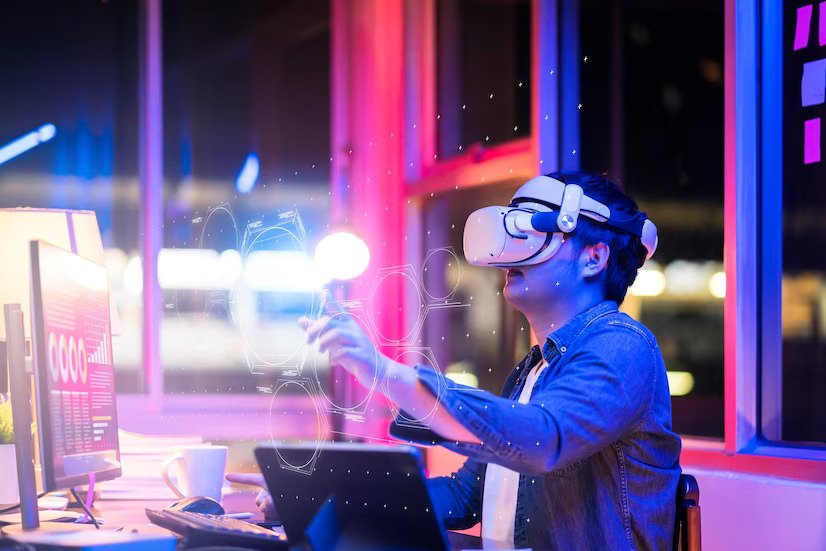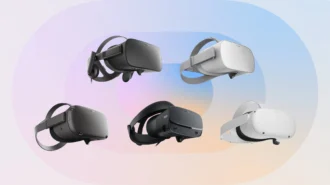Embracing Immersion: Using Virtual Reality in Life Coaching
The world of life coaching is ever-evolving, driven by innovative techniques and groundbreaking technology. One such technology that has recently created waves in numerous sectors is Virtual Reality (VR). With its immersive properties, VR has the potential to redefine coaching methods, offering enriched, highly-personalized experiences. But what exactly does using VR for immersive coaching entail, and how can life coaches harness this technology to maximize benefits for their clients? Let’s delve in.
What is VR?
First, it’s essential to understand what VR is. In simple terms, Virtual Reality is a simulated experience that can be similar to or completely different from the real world. VR devices such as headsets offer 360-degree views, simulating as though the user is physically present in that environment. Now, imagine the tremendous potential it holds for life coaching, a field that heavily relies on interaction, personalization, and engagement.
Integrating VR into life coaching brings a new level of immersion into the learning process. Traditionally, life coaching has been about conversation and reflection, guided by a coach either face-to-face or through digital means like video calls. VR, however, can take these interactions to the next level by enabling a more immersive environment for self-exploration and skill development.
Advantages of using VR in life coaching
Creation of Customizable Learning Environments
The first key advantage of using VR in life coaching is the creation of customizable learning environments. Every individual responds differently to their surroundings, and with VR, it is possible to tailor experiences for each client. For example, a coach can create a calm, serene VR setting for a client struggling with stress. The lifelike simulation can significantly enhance the client’s engagement and receptiveness during coaching sessions.
Safe Space for Clients
VR also offers a safe space for clients to explore their thoughts, feelings, and behaviors. A client can rehearse challenging scenarios, confront difficult situations, or practice new behaviors within the VR environment. This “virtual sandbox” approach allows individuals to test and learn without fear of real-world consequences, creating a powerful platform for personal growth.
Possibility of multisensory stimulation
Another transformative aspect of VR in life coaching is the possibility of multisensory stimulation. With VR’s capacity to engage multiple senses, a coach can create rich, immersive experiences that help clients connect more deeply with their emotions and thoughts. For instance, integrating elements like the sound of waves, the warmth of a virtual sun, or the scent of a forest can enhance the sensory experience, making coaching sessions more impactful.
So, how can life coaches effectively use VR in their practice?
Training and education are key. As with any new technology, life coaches must understand VR’s functionality and potential implications for coaching. Several organizations now offer VR training for professionals, so acquiring the requisite knowledge is feasible.
The Future of VR in Life Coaching
The use of VR in life coaching is still in its early stages, but there is a great deal of potential for this technology to revolutionize the way that coaches work with their clients. As VR technology continues to develop, we can expect to see even more innovative and effective ways to use VR in life coaching.
One area where VR has the potential to make a significant impact is in the field of trauma therapy. VR can be used to create immersive simulations of traumatic events, which can help clients to process their experiences and overcome their fears. This could be a valuable tool for helping veterans with post-traumatic stress disorder (PTSD), or for people who have experienced other types of trauma.
VR can also be used to help people with anxiety disorders. For example, VR can be used to create simulations of social situations, which can help people with social anxiety to practice their social skills in a safe environment. This could be a valuable tool for helping people to overcome their anxiety and live more fulfilling lives.
Furthermore, life coaches should approach VR integration gradually. Start by using VR in specific areas where it can add substantial value, such as stress management or confidence building. As coaches become more adept at using VR, they can gradually expand its application to other aspects of coaching.
It’s important to remember that while VR offers numerous advantages, it should not replace traditional coaching methods. Instead, it should complement them. The human connection between coach and client remains a fundamental part of the coaching process, and this should not be lost in the digital realm.
Finally, as VR technology becomes more advanced and accessible, ethical considerations should be top of mind for life coaches. They must ensure that the use of VR is safe, appropriate, and beneficial for their clients, adhering to professional guidelines and ethics at all times.
The advent of VR in life coaching heralds an exciting era. By offering immersive, customizable experiences, VR can transform the coaching process, making it more engaging, personalized, and effective. As we continue to explore and understand this technology’s full potential, there’s little doubt that VR will become an integral tool in life coaching.
By embracing the VR revolution, life coaches can propel their practice into the future, fostering deeper connections with clients and facilitating transformative change in their lives. In the world of life coaching, the future is immersive, and it’s virtually real.


















